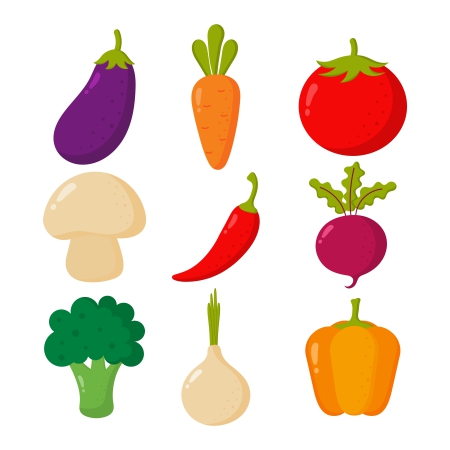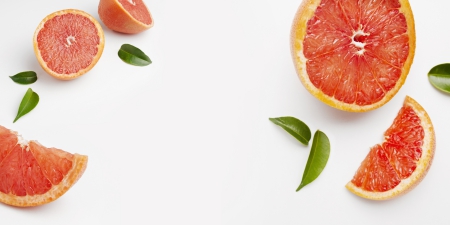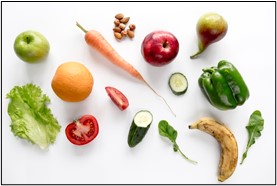The need of consuming food is a biological reality. Every individual requires foods for their survival as foods help to provide energy required for performing every physiological functions of body and helps to protect the body by enhancing immunological responses. According to taste, foods can be broadly classified into six groups which include sweet, sour, salty, astringent, pungent and bitter foods among which, bitter foods are considered as more nutritious and healthier. They have various health benefits and hence it is better to include a bitter food in every meal to enhance the overall nutritional status of the body. It has seen that bitter foods act as a potent detoxifying agent and have antiseptic, antibiotic and anti-parasitic effects.
Nutritional overview of bitter foods
- In one-word, bitter foods are nutritious and health worthy and should be consumed daily. It contains various plant-based chemicals that make it healthier
- Bitter foods are rich in vitamins, minerals and dietary fibres
- It also contains phytonutrients which are responsible for providing antioxidant, anti-carcinogenic and anti-inflammatory activities
- It helps to stimulate the secretion of enzymes from digestive glands and improves digestibility. Traditionally bitter foods or their extracts are used as tonic and had served after heavy and large meal to stimulate digestion
- Bitter foods help to prevent bloating and related gastrointestinal irritabilities
- It has great therapeutic advantages on promoting gastrointestinal health by enhancing gut microbiome
- It has been used for centuries in ayurveda as a strong natural diuretic and helps to prevent water retention within body
- According to traditional Chinese medicine, bitter foods are believed to have the ability to counteract the effect of heat within body and consuming bitter foods are also associated with improving the health of heart

Bitter is a better option for health
It has seen that most of the people have a craving for salty snacks or sweet foods, but consumption of bitter foods is better for health. Consumption of high sugar and high salty foods are associated with developing metabolic syndromes within body like, diabetes, obesity, hypertension, cardiovascular diseases, whereas consumption of bitter foods exert the opposite effects. Though bitterness sometime causes toxicity, but it is true that all the bitter foods are not toxic. On a contrary, most of the bitter foods are nutrient dense and beneficial for optimum digestion and absorption of nutrients and helps to prevent various degenerative diseases.
Bitter food items
Bitter foods are generally termed as bitters. Foods which are considered as top bitters are listed below –
- Bitter melon
- Arugula
- Broccoli rabe
- Artichoke
- Chicory

- Cranberries
- Brussels sprouts
- Dark chocolate
- Dandelion greens
- Coffee
- Eggplant
- Dill
- Ginger
- Kale
- Red wine
- Meant
- Sesame seed
- Saffron
- Grapefruits
- Apple cider vinegar
- Citrus peel
- Cruciferous vegetables
- Green tea
- Beer
Health benefits
Role on digestion and absorption of nutrients
- Consumption of bitter foods stimulate the taste receptors on tongue that influence the secretion of saliva and gastric juice, which promotes digestion
- Bitters also stimulate the taste receptors present in gut which help in the release of gastrointestinal hormone cholecystokinin (CCK) that stimulates the secretion of pancreatic enzymes, bile and intestinal enzymes which are also related with promoting digestion. CCK also facilitates digestion of foods by enhancing blood flow within gastrointestinal tract
- Better digestion is directly related with better absorption. It has seen that bitters mainly maximize the absorption of vitamins and minerals and helps to prevent respective deficiency disorders
Role on promoting gastrointestinal health
- It has seen that bitter foods (especially bitter vegetables) are rich in prebiotics and help to support the growth of beneficial intestinal flora that promotes gastrointestinal health
- Bitters also help to preserve and protect intestinal permeability that helps to prevent the crossing of toxins, bacteria from GI tract to blood stream and hence helps to reduce the prevalence of infections and
- It also helps to improve the symptoms of leaky gut

Role on regulating craving and appetite
- Consumption of bitter foods help to reduce the craving for sweets and hence related with reducing glycemic load
- Fibre content of bitters are associated with providing a feeling of stomach fullness and hence regulate appetite that results in a reduction in food intake
- Consumption of bitter foods stimulate taste receptors of gut and enhances the release of gut hormones peptide tyrosine tyrosine (PYY) and glucagon-like peptide 1 (GLP-1), that also regulate hunger, appetite and food intake
- It has seen that consumption of bitters or its supplements one hour before meal can able to reduce food intake due to its ability of controlling hunger and hence produce fewer calories. So, consumption of bitter foods is a healthy option for perfect weight management
Role on promoting liver health
- Bitter foods help to promote liver function by stimulating bile secretion
- The phytonutrient contents of bitter foods are also responsible for promoting hepatic health by regulating hormonal balance, fat metabolism and cholesterol concentration
- Bitters also help to detoxify blood

Role on preventing diabetes
- It has seen that pancreas contains bitter taste receptor and consumption of bitter foods help to stimulate the taste receptor situated on pancreas and promote the secretion of pancreatic hormones. Proper secretion of insulin (one of the pancreatic hormones) helps to reduce blood sugar concentration and decrease the prevalence of diabetes
- Secretion of glucagon-like peptide 1 (GLP-1) also related with enhancing the release of insulin hormone
- As mentioned above, bitter food reduces sweet craving, hence it is considered as one of the most important features of regulating blood sugar level as it is related with reducing sweet intake
Tips for getting significant bitters in diet
- Consuming vegetables is the easiest way of enhancing bitters intake through diet. It is beneficial to consume green leafy vegetables, fruits and cruciferous vegetables daily which can fulfill the requirement of bitter foods
- Individual who looks for herbal therapy should go for bitter herb supplements as it is related with providing additional health benefits. It has seen that swallowing bitter herbal capsules is strongly associated with activating bitter taste receptor and hence optimizes the affectivity of consuming bitters
- Usage of aromatic bitters is another option for enhancing bitters consumption
General consideration of consuming bitter foods

Some points should be kept in mind before consuming bitter food stuffs which include –
- As we know that vegetables are good source of bitters and before consumption, it should be rinse and washed properly to remove sand, darts and grits followed by drying to eliminate excess water
- It is better to toss the vegetables with some healthy oil (such as olive oil or soybean oil) for enhancing the absorption of fat-soluble vitamins
- Bitters may be often consumed along with dates or strawberries or blueberries, as it would vary the texture and flavors of meal and prevents monotony
- As bitters are rich in fibre hence excessive water should be consumed after consuming bitters for keeping things moving and promoting regularity
- It is better to avoid bitters during pregnancy
- Excessive consumption of bitter is not good for health as it causes some health complications like bloating, diarrhea, nausea, vomiting and related gastrointestinal issues
Source:
Behrens, M., Gu, M., Fan, S., Huang, C. and Meyerhof, W., 2018. Bitter substances from plants used in traditional Chinese medicine exert biased activation of human bitter taste receptors. Chemical biology & drug design, 91(2), pp.422-433.
Christina, J., Palma‐Salgado, S., Clark, D., Kahraman, O. and Lee, S.Y., 2016. Impact of Prior Consumption on Sour, Sweet, Salty, and Bitter Tastes. Journal of food science, 81(2), pp.S477-S482.
Dailey, M., 2016. Bitter and Sweet: Food, Meaning, and Modernity in Rural China.
Kwok, G.Y.C., 2016. Bitter Taste and Risk Related to Type 2 Diabetes (BITR). Loma Linda University.
Lambert, J.D., VanDusen, S.R., Cockroft, J.E., Smith, E.C., Greenwood, D.C. and Cade, J.E., 2019. Bitter taste sensitivity, food intake, and risk of malignant cancer in the UK Women’s Cohort Study. European journal of nutrition, 58(5), pp.2111-2121.
McDowell, E.H., 2017. Qualitative differences among bitter stimuli found in foods and pharmaceuticals.
Nissim, I., Dagan‐Wiener, A. and Niv, M.Y., 2017. The taste of toxicity: A quantitative analysis of bitter and toxic molecules. IUBMB life, 69(12), pp.938-946.
Vecchio, R., Cavallo, C., Cicia, G. and Del Giudice, T., 2019. Are (All) Consumers Averse to Bitter Taste?. Nutrients, 11(2), p.323.







